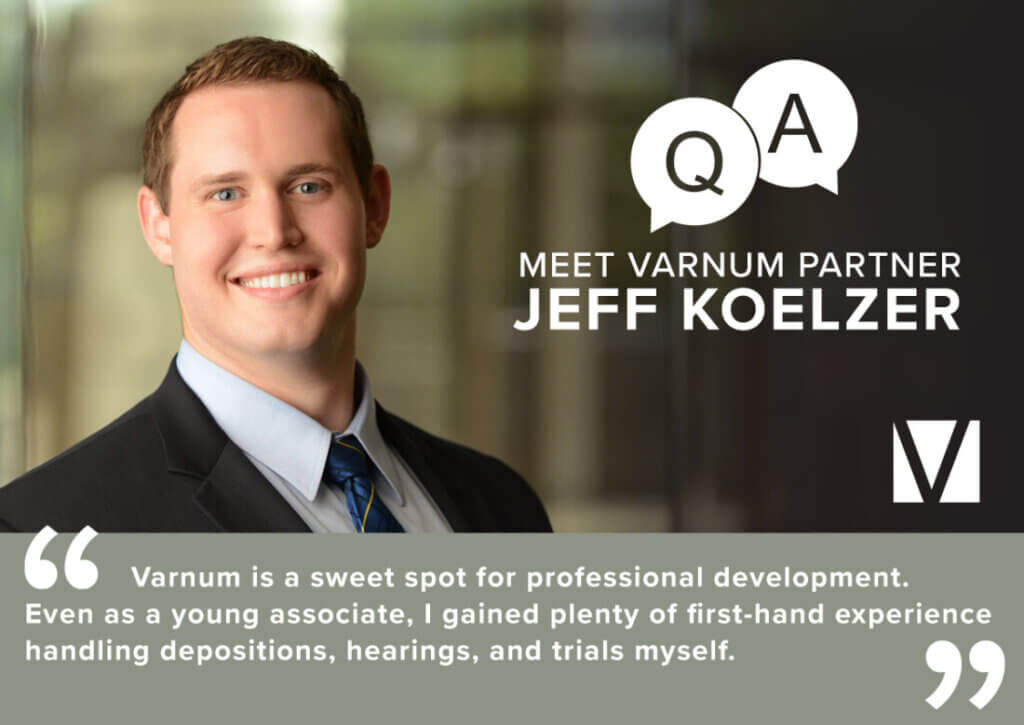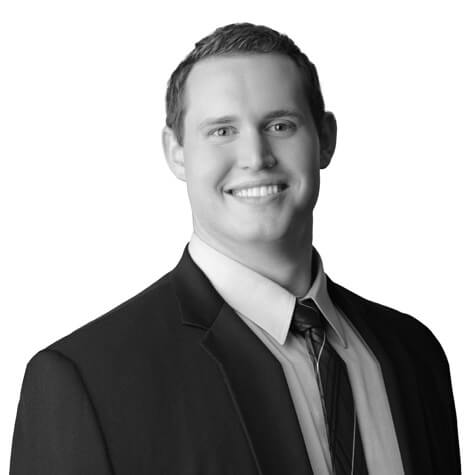
Q: What attracted you to become a lawyer?
A: Since I was in high school, I believed I had the skill set to be a good lawyer, and I also liked the idea of being someone people would turn to because I had expertise and special skills that could solve their problems.
Q: How did you decide to focus on your practice?
A: I was one of the first associates to go through Varnum’s “free agent” program, which allowed me to try several practice areas before formally committing. I studied economics at the University of Michigan and have always been interested in business so I originally favored corporate transactional work. Through the free agent program, I learned that I preferred dealing with business matters in the context of an active dispute so I gravitated toward commercial litigation. I also came to learn that divorce matters with large or complex estates had much in common with other commercial litigation, and through my involvement in those matters I came to practice all aspects of family law.
Q: What does client service mean to you?
A: I think it means being a team member first and a lawyer second. I try to put myself in my clients’ shoes and think about what result is best for them and what is the most practical way to achieve that. With those items in mind, I objectively consider what legal avenues are appropriate, rather than favoring my preferences as a lawyer and allowing the “usual way” of doing things determine what course we take.
Q: What do you most enjoy about being a Varnum lawyer?
A: Varnum is a sweet spot for professional development. Even as a young associate, I gained plenty of first-hand experience handling depositions, hearings, and trials myself. But there was never any shortage of seasoned veteran attorneys whom I could look to for examples and advice.
Q: What is your proudest career achievement?
A: In February 2020, I was part of trial team that won a significant jury verdict on an inverse condemnation case in Kent County Circuit Court. I had worked on every aspect of that case for nearly my entire time as an associate at Varnum, and I was proud to see it through to a successful jury verdict.
Q: How have you and your clients adapted together over the past year?
A: It has been a relatively seamless transition to a more remote and paper-free way of doing litigation. Through videoconferencing, we’ve been able to conduct mediations, settlement conferences, trials, hearings, depositions, and affidavit notarizations, often in a more efficient way than we would have been able to do before. We have also improved how we handle electronic documents, to eliminate the need for in-person document handling and also to facilitate document sharing during video conferences.
